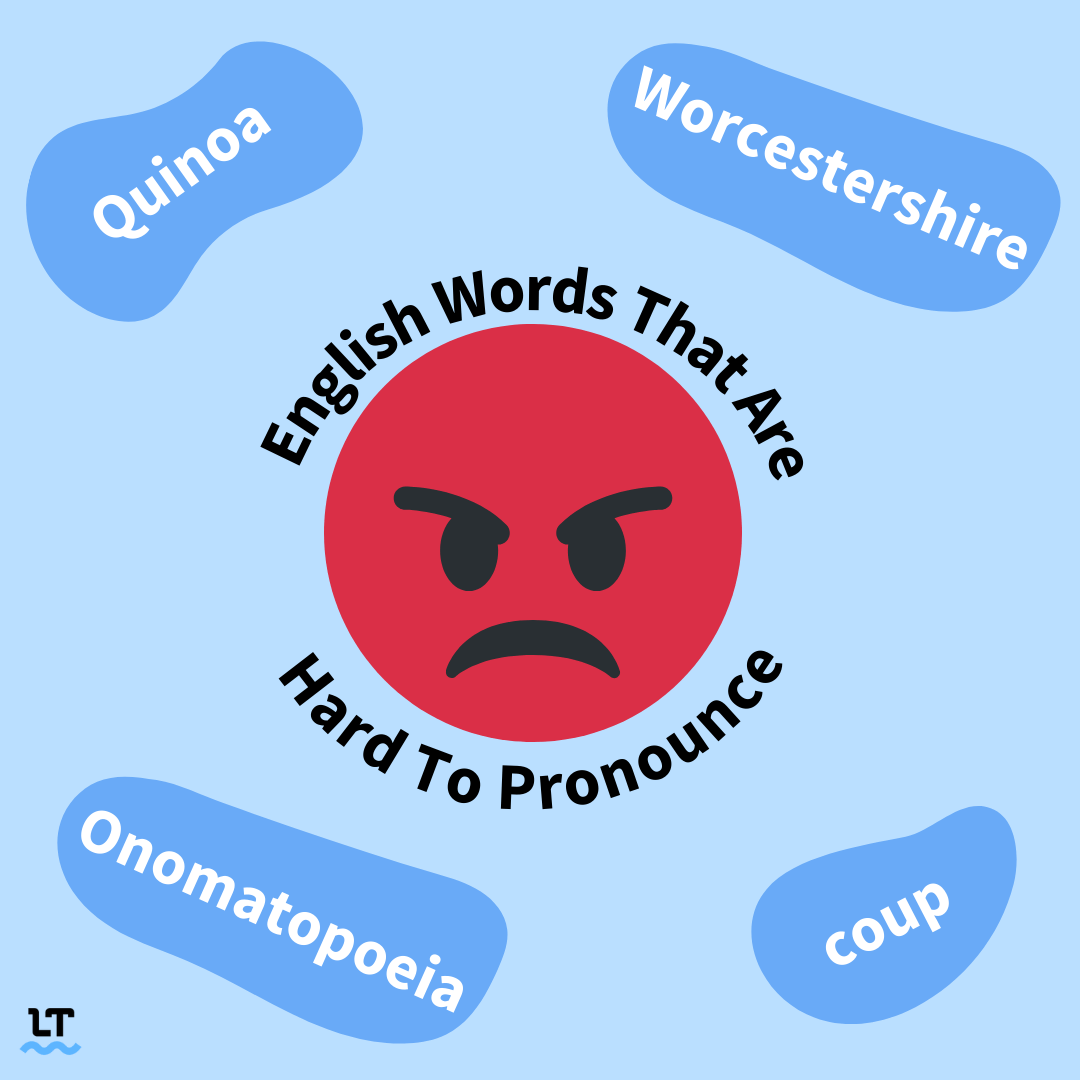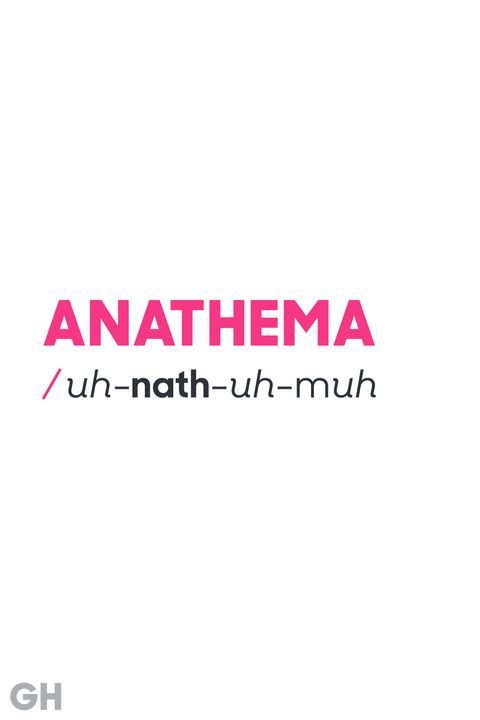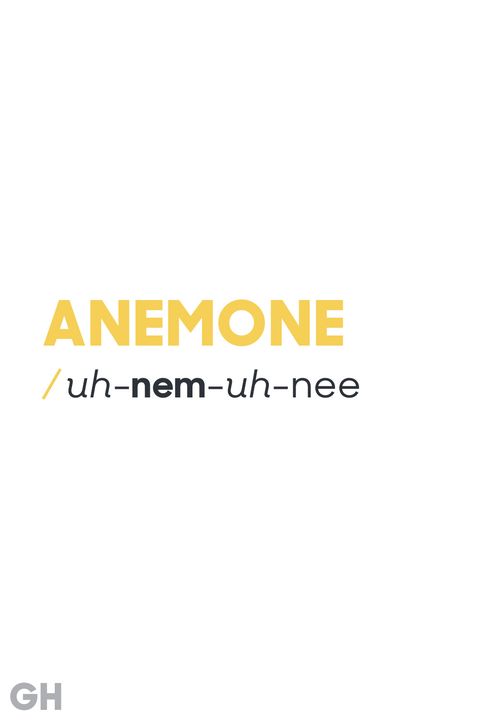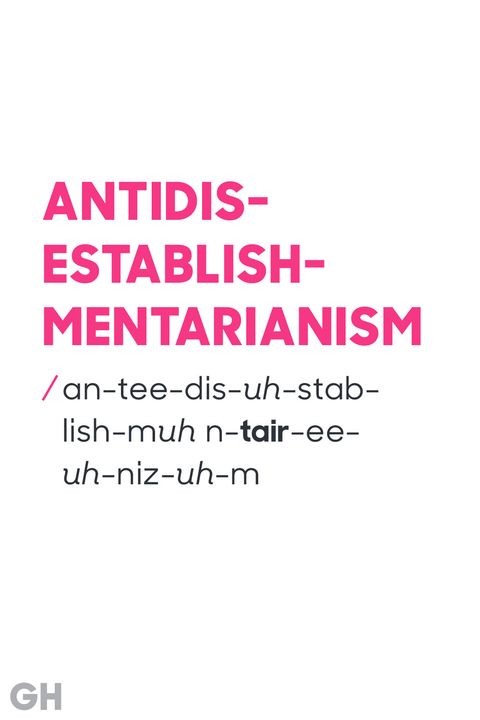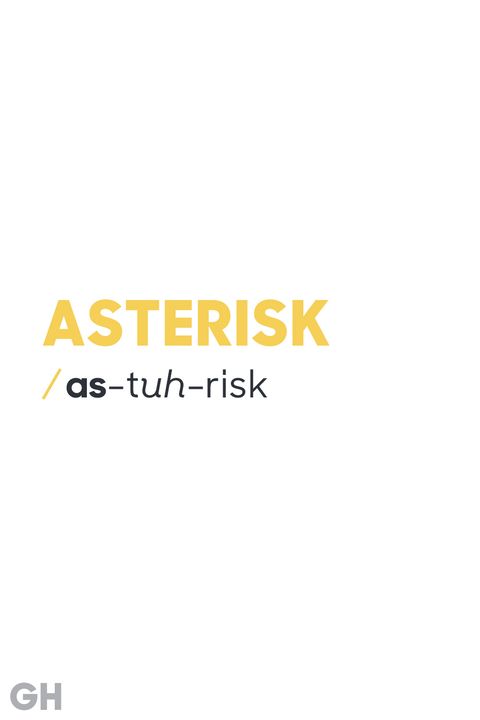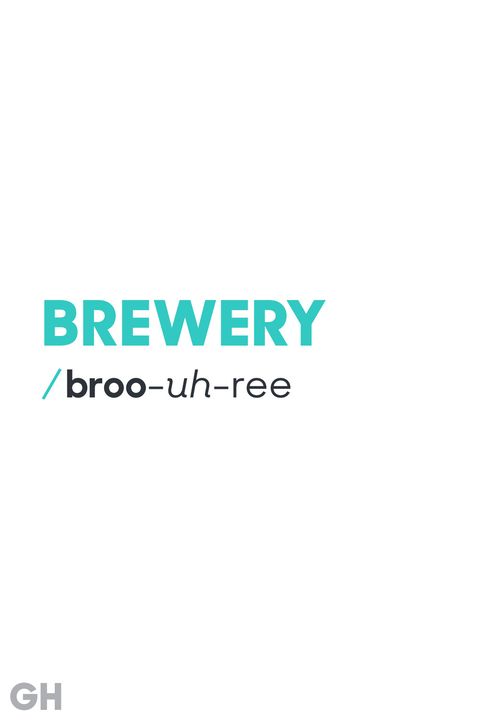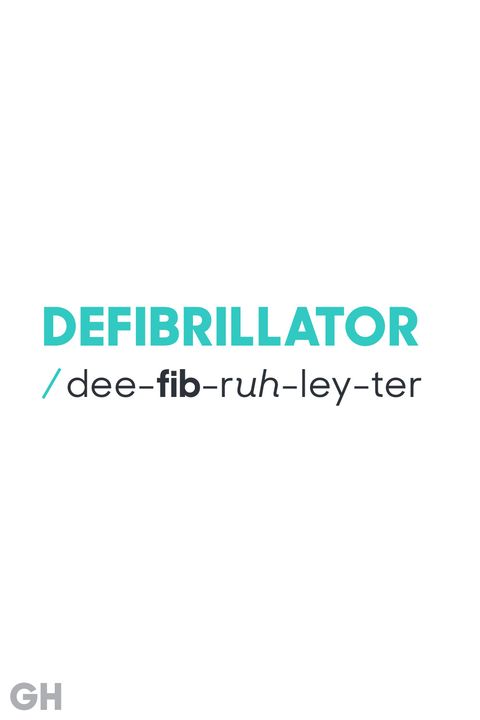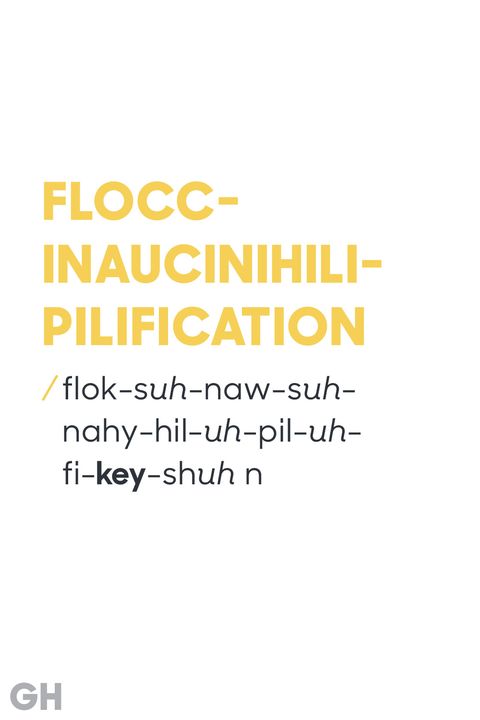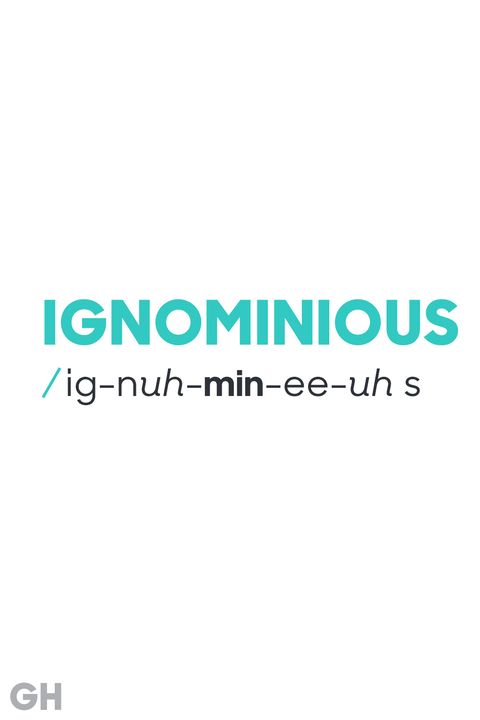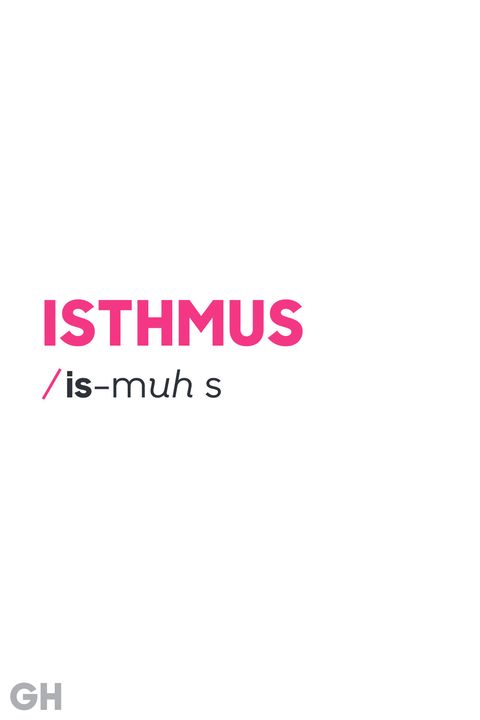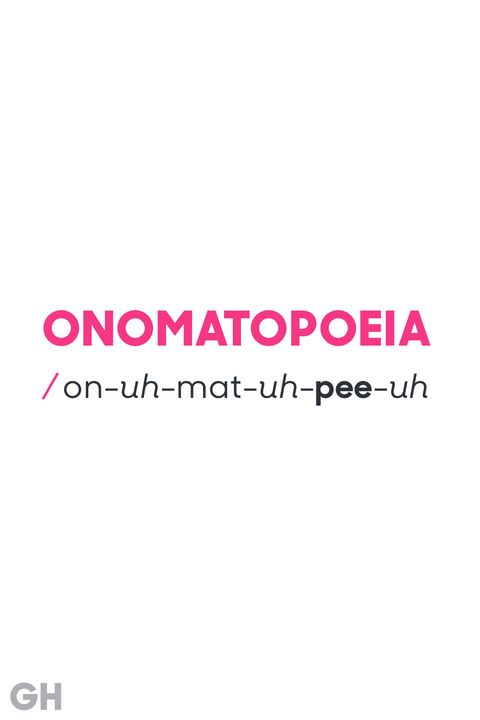We all know the embarrassing feeling of discovering we’ve been mispronouncing a word for years. On the other hand, some words are so commonly mispronounced that the «correct» pronunciation sounds downright strange.
Don’t feel bad if you’ve been mispronouncing some of these tricky words. A living language like English evolves and thrives precisely because it is spoken every day. Some people choose to adhere to rigid rules of grammar and pronunciation (known as linguistic prescription) and take pleasure in the precision of English grammar and vocabulary. Others prefer the descriptive linguistics approach, which doesn’t apply judgments such as «correct» or «incorrect» but instead looks at how language is actually used. In other words, as long as people can understand you, you are successfully using language for its primary purpose: communication.
Accede
How to say it: ak-SEED
May be mispronounced: a-SEED
What it means: to consent, give approval; yield to another’s wishes
Alias
How to say it: AY-lee-iss
What it means: an assumed name taken on temporarily, sometimes by a criminal or fugitive
Anathema
How to say it: uh-NATH-uh-muh
What it means: someone or something that one strongly dislikes or loathes
Anemone
How to say it: uh-NEH-muh-nee
What it means: a flower in the buttercup family; a sedentary marine animal, as in sea anemone
Apocryphal
How to say it: uh-POK-ruh-fuhl
What it means: of questionable authenticity, as in a story or statement
Camaraderie
How to say it: kah-muh-RAH-duh-ree
May be mispronounced: kahm-RAH-duh-ree
What it means: easy familiarity and friendship, often built over time
Colloquialism
How to say it: kuh-loh-kwee-uh-liz-uhm
What it means: a word, phrase, or expression that is conversational rather than formal
Debauch
How to say it: dih-BAWCH
What it means: to lead away from virtue; to corrupt morally
Demagogue
How to say it: DEM-uh-gog
What it means: a leader who appeals to popular passions and prejudices to gain support
Emollient
How to say it: ih-MOL-yuhnt
What it means: making smoother or less harsh; a substance with a soothing effect on the skin
Epitome
How to say it: ih-PIT-uh-mee
May be mispronounced: eh-pi-TOME
What it means: a person or thing that characterizes a whole category to which it belongs
Espouse
How to say it: ih-SPOWZ
May be mispronounced: ex-POWZ
What it means: to follow or support an idea or theory as a cause
Espresso
How to say it: eh-SPRES-oh
May be mispronounced: ex-PRESS-oh
What it means: a strong coffee of Italian origin, made by forcing hot water through finely-ground coffee beans
Fatuous
How to say it: FACH-oo-uss
May be mispronounced: FAT-choo-uss
What it means: foolish, inane; devoid of intelligence
Forte
How to say it: for-TAY or fort (depending on meaning)
What it means: a musical direction meaning loud (pronounced «for-TAY»); a strong point or a strength (pronounced «fort»)
Grandiloquent
How to say it: gran-DILL-uh-kwuhnt
What it means: extravagant, lofty, or bombastic in style or manner, especially language
Hegemony
How to say it: hih-JEH-muh-nee
May be mispronounced: hedge-ih-MOAN-ee or homo-JENNY
What it means: authority, leadership, or influence by a dominant social group
Inchoate
How to say it: in-KOH-it
What it means: only partly in existence; partially formed, as in an idea
Knell
How to say it: nel
May be mispronounced: knel (with the k)
What it means: the sound of a bell rung slowly to announce death or a funeral
Maelstrom
How to say it: meyl-struhm
What it means: a violent whirlpool
Mauve
How to say it: mohv
May be mispronounced: mawv
What it means: a pale purple color
Mischievous
How to say it: MISS-chuh-vuhs
May be mispronounced: mis-CHEE-vee-uhs (note the extra syllable)
What it means: naughtily annoying or troublemaking
Nadir
How to say it: NAY-deer
What it means: the lowest point
Neophyte
How to say it: NEE-uh-fahyt
What it means: a beginner, a new participant
Noisome
How to say it: NOI-sum
What it means: disgusting, as in odor; capable of causing nausea
Panacea
How to say it: pan-uh-SEE-uh
What it means: a cure-all; a remedy for all illness or solution for all problems
Phlegmatic
How to say it: fleg-MAT-ik
What it means: slow to react, not showing emotion; calm and composed
Protean
How to say it: PROH-tee-uhn
May be mispronounced: pro-teen
What it means: assuming various forms; changeable in shape, as an amoeba
Puerile
How to say it: PYOO-er-il
What it means: relating to a child or childhood; immature, foolish
Pulchritude
How to say it: PUHL-kri-tood
What it means: physical beauty, comeliness
Quinoa
How to say it: KEEN-wah
May be mispronounced: KEEN-oh-ah
What it means: a small edible crop seed
Quixotic
How to say it: kwik-SOT-ik
What it means: insensibly extravagant or romantic
Sanguine
How to say it: SANG-gwin
May be mispronounced: sang-WHINE
What it means: cheerful, hopeful, confident, especially in a bad situation
Sherbet
How to say it: SHUR-bit
May be mispronounced: SHUR-burt
What it means: a frozen fruit-flavored dessert made without milk
Staid
How to say it: steyd
What it means: settled; sedate in character
Surfeit
How to say it: SUR-fit
What it means: an excessive amount
Timbre
How to say it: TAM-ber
May be mispronounced: TIM-ber (as in, that tree’s about to fall down)
What it means: the sound or tonal quality of a particular voice or musical instrument
Truculent
How to say it: TRUHK-yuh-luhnt
What it means: defiant, quick to argue or fight
Vicissitude
How to say it: vih-SIS-ih-tood
What it means: a change in circumstance, usually undesired
Zephyr
How to say it: ZEF-er
May be mispronounced: ZEF-fire
What it means: a soft, mild breeze
Main Resources for Definitions
https://www.merriam-webster.com
https://www.dictionary.com
One of the biggest challenges facing people who are trying to learn English as a second language is the thought that, there are so many hard English words to pronounce!
What makes a word hard to pronounce? Often times the
difficult words to pronounce for non-native English speakers are those that are spelled completely different from how they are pronounced.
Not all English words are pronounced phonetically. When a word is pronounced phonetically, it is pronounced how it is spelled. Take the word “know”, if it was pronounced phonetically, the “k” would be spoken. However, the “k” is not spoken and this makes “know” one of the English
language’s tricky pronunciation words.
Take a look at the
English vocabulary words below. These are hard words for kids to say, even if they are native English speakers, and that can trip up adults as well. So don’t be ashamed to look them up and practice the correct way to pronounce them.
1. Accede
How is it pronounced?
“ak-SEED”, emphasis on the second syllable
What does it mean?
To accede means to give your consent or approval to someone else’s actions. It can also mean that you agree with the opinions of a group.
2. Alias
How is it pronounced?
“AY-lee-iss”, emphasis on the first syllable
What does it mean?
An alias is an assumed name or identity.
3. Anathema
How is it pronounced?
“un-NATH-uh-muh”, emphasis on the second syllable
What does it mean?
This means that you dislike something or someone intensely
4. Anemone
How is it pronounced?
“uh-NEH-muh-nee”, emphasis on the second syllable
What does it mean?
Properly called a “sea anemone”, this is a marine animal that lives on reefs and ocean floors. It’s a sedentary animal that attaches itself to a particular area and doesn’t move, that many people think looks like a flower.
There is also a type of flowering land plants that are called anemones.
5. Antarctic
How is it pronounced?
“ant-AHRK-tik”
What does it mean?
The Antarctic is simply the South Pole.
6. Brewery
How is it pronounced?
“BROO-uh-ree”, emphasis on the first syllable.
What does it mean?
Why is it that words that have something to do with drinking are such hard words to say when drunk? This three syllable word is used for bars specializing in beer. They often brew their own beers.
7. Camaraderie
How is it pronounced?
“kah-muh-RAH-duh-ree”, emphasis on the third syllable
What does it mean?
This is the feeling of warmth and familiarity you get when around a group of trusted friends.
8. Cavalry
How is it pronounced?
“KAV-uhl-ree”, emphasis on the first syllable.
What does it mean?
Traditionally, the cavalry were soldiers on horseback. Now, cavalry is usually used to mean someone or something who offers help when you really need it.
9. Choir
How is it pronounced?
“kwah-yuhr”
What does it mean?
A choir is a group of singers. Traditionally, choirs sang religious songs during church services.
10. Colonel
How is it pronounced?
“ker-nul”
What does it mean?
A military officer.
11. Comfortable
How is it pronounced?
“KUHM-fer-tuh-buh”, with emphasis on the first syllable
What does it mean?
If you are comfortable, you are relaxed and at ease.
12. Defibrillator
How is it pronounced?
“dee-FIB-ruh-ley-ter”, emphasis on the second syllable
What does it mean?
If you watch a lot of medical TV shows, you might have seen this. It’s that device, with two paddles attached to wires that are held to someone’s chest to deliver a shock that is supposed to help restart your heart.
13. Deteriorate
How is it pronounced?
“dih-TEER-ee-uh-reyt”
What does it mean?
When someone deteriorates their condition grows worse. This can also be used to talk about a situation you find yourself in. Basically, things are getting bad.
14. Draught
How is it pronounced?
“draft”
What does it mean?
An alcoholic beverage, usually traditional kept in a keg. Like draught beer.
15. Epitome
How is it pronounced?
“ih-PIT-uh-mee”, emphasis on the second syllable
What does it mean?
Someone or something that is the perfect example of a quality or of a type.
16. Espouse
How is it pronounced?
“ih-SPOWZ”, emphasis on the second syllable
What does it mean?
When you follow or support a particular idea. Usually you are vocal and proud about your support.
17. Espresso
How is it pronounced?
“eh-SPRES-oh”
What does it mean?
When you order an “espresso” you are asking for a type of strong Italian coffee.
18. Explicit
How is it pronounced?
“ik-SLIS-it”, with emphasis on the second syllable
What does it mean?
This is not one of those hard words to say with a lisp, as you are supposed to sound like your lisping slightly. When you are explicit about something, you state it clearly and in complete detail.
19. Exponentially
How is it pronounced?
“ek-spoh-NEN-shuh-lee”, emphasis on the third syllable
What does it mean?
This is an adverb that means something is increasing rapidly.
20. Ignominious
How is it pronounced?
“ig-nuh-MIN-ee-uhs”, emphasis on the third syllable
What does it mean?
This is usually used as an adverb to describe and action that is considered disgraceful or dishonorable.
21. Isthmus
How is it pronounced?
“is-muss”
What does it mean?
This is the name of a geographical feature. An isthmus is a narrow piece of land that is located between two different seas.
22. Know
How is it pronounced?
“noh”
What does it mean?
This is a tricky word because it is an example of a word with what we call a silent “k”. To know how to pronounce “know”, you need to know it has a silent k.
23. Knell
How is it pronounced?
“nel”
What does it mean?
The rule about a silent “k” makes for tricky pronunciation words. Here’s another word where the “k” is silent and so is the second “l”. This word is used to refer to the ringing of a bell. Usually, this is a big church bell that makes a slow, loud noise.
24. Library
How is it pronounced?
“LAHY-brer-ee”, emphasis in the first syllable
What does it mean?
This is a building which contains a collection of books and other published materials.
25. Mauve
How is it pronounced?
“mohv”
What does it mean?
Mauve is a color. It is a shade of pale purple.
26. Mischievous
How is it pronounced?
“MISS-chiv-us”, with the emphasis on the first syllable.
What does it mean?
This is an adjective that basically means behaving in a way that causes “trouble”. A mischievous action is not bad or evil. It is usually playful and with no malice behind it.
27. Nadir
How is it pronounced?
“NAY-deer”, emphasis on the first syllable
What does it mean?
This means reaching the lowest point.
28. Neophyte
How is it pronounced?
“NEE-uh-fahyt”
What does it mean?
This word is used to refer to a beginner, someone who is new to a task, job, or a group.
29. Often
How is it pronounced?
“AW-fuhn”, emphasis in the first syllable
What does it mean?
If you do something “often” you do it a lot or repeatedly.
30. Onamatopeia
How is it pronounced?
“on-o-mot-o-PEE-a”, with the emphasis on the fifth syllable.
What does it mean?
This is a term for a word that refers to a sound. These words actually imitate the sound they are supposed to refer to, such as “roar” or “buzz”. It has six syllables which make it quite
a mouthful to pronounce, even for native speakers of English.
31. Otorhinolaryngologist
How is it pronounced?
“oh-toh-rye-no-lar-ing-GOL-uh-jee”, emphasis on the seventh syllable.
What does it mean?
This nine syllable word is the formal title of a specific type of medical doctor. This is a doctor who specializes in treating eye, nose, and ear conditions. The simpler way to refer to these types of doctors is as an ENT doctors.
32. Panacea
How is it pronounced?
“pan-uh-SEE-uh”, emphasis on the third syllable
What does it mean?
This refers to a remedy for illness.
33. Phlegmatic
How is it pronounced?
“fleg-MAT-ik”, emphasis on the second syllable
What does it mean?
This is someone who is easy-going. No matter what happens around them they remain calm and collected.
34. Penguin
How is it pronounced?
“peng-gwin”
What does it mean?
A penguin is a type of flightless sea bird. They are typically black and white.
35. Phenomenon
How is it pronounced?
“fi-NOM-uh-non”, emphasis on the second syllable
What does it mean?
A phenomenon is an event that is observable,
36. Puerile
How is it pronounced?
“PYOO-er-il”, emphasis on the first syllable
What does it mean?
When you think something is “purile” you believe it is foolish or childish.
37. Quinoa
How is it pronounced?
Either “KEEN-wah,” “ken-WAG, or “KEN-o-ah”
What does it mean?
Quinoa is an ancient grain that has grown in popularity in the recent decade because of its nutritional values. It’s considered a “superfood” and is actually a Spanish word.
38. Quixotic
How is it pronounced?
“kwik-SOT-ik”
What does it mean?
This is someone who is very idealistic, to the point that their ideas are impractical or unrealistic.
39. Rural
How is it pronounced?
“roor-uhl”
What does it mean?
When you say a place is “rural” you mean that it is located in the countryside.
40. Sanguine
How is it pronounced?
“SANG-gwin”, emphasis on the first syllable
What does it mean?
Someone who is sanguine is cheerful and hopeful, even if they are facing a bad situation.
41. Scissors
How is it pronounced?
“sizzors”
What does it mean?
These are two bladed cutting instruments that you use to cut into thin materials such as paper or cloth.
42. Sixth
How is it pronounced?
“siksth”
What does it mean?
When you say something is the “sixth”, your saying it is item number six in a sequence.
43. Specific
How is it pronounced?
“spi-SIF-ik”, emphasis on the second syllable
What does it mean?
This means that something is clearly defined.
44. Squirrel
How is it pronounced?
“skwi-rel”
What does it mean?
A squirrel is a bushy tailed rodent that lives in trees.
45. Staid
How is it pronounced?
“steyd”
What does it mean?
Someone who is staid is sedate and calm.
46. Successful
How is it pronounced?
“SUKH-ses-fuhl”, emphasis on the first syllable
What does it mean?
If you are successful in pronouncing this word, then you pronounced it correctly. When you are successful in something, you accomplished your aim or your purpose.
47. Surfeit
How is it pronounced?
“SUR-fit”, emphasis in the first syllable
What does it mean?
A surfeit is an extra amount of something.
48. Temperature
How is it pronounced?
“tem-PER-uh-cher”, emphasis on the second syllable
What does it mean?
This is a scientific measurement meant to gague the degree of heat that is present in an object or a substance.
49. Truculent
How is it pronounced?
“TRUHK-yeh-luhnt”, emphasis on the first syllable
What does it mean?
Someone who is truculent is quick tempered. They get into arguments or fights easily.
50. Worcestershire
How is it pronounced?
“WOOster-sher”
What does it mean?
A special sauce that originated in Worcester, a town in England. The town name is also pronounced the as “WOOster-sher”.
51. Zephyr
How is it pronounced?
“ZEF-er”, emphasis on the first syllable
What does it mean?
This refers to a breeze that is soft and mild.
Conclusion
If you want to learn how to correctly pronounce tricky vocabulary words, the answer is: Practice, practice, practice.
It’s also a really good idea to get a native language speaker as an English tutor who can listen to you say these words and help you with your pronunciation. You can also practice using these hard to pronounce words in conversation which will really help you learn them.
One of the most problematic aspects of documenting words from audio is deciphering words that may be mispronounced due to being difficult for foreigners and even English-speaking Americans. That’s one of the many reasons to hire translation services that can do the work for you. Here are 20 English words that commonly cause pronunciation problems.
20 Most Difficult Words to Pronounce in the English Language
1. Colonel
2. Worcestershire
3. Mischievous
4. Draught
5. Quinoa
6. Onomatopoeia
7. Scissors
8. Anemone
9. Isthmus
10. Otorhinolaryngologist
11. Squirrel
12. Ignominious
13. Successful
14. Sixth
15. Phenomenon
16. Rural
17. Specific
18. Synecdoche
19. Temperature
20. Often
1. Colonel — Derived from Middle French, this pronunciation is «ker-nul.» The reason it’s a strange word for foreigners is that it lacks an «r,» despite using that sound when spoken. The second «o» is silent, which adds to the confusion.
2. Worcestershire — Americans mispronounce this name since it uses its traditional British-English pronunciation, which is «woo-ster-sher» instead of wor-cest-er-shi-er.» The ending «shire» means «county» in Britain. So the Worcestershire sauce used as food seasoning is merely named after the region in which it originates. It may help to remember that after «wo» the «rce» part of the word is silent and «shire» is pronounced «sher,» like in New Hampshire.
3. Mischievous — While many Americans say «mis-CHEEV-ee-us,» the actual pronunciation is «MIS-chiv-us.» The confusion lies in the fact that it’s a three-syllable word but appears to have four syllables.
4. Draught — Travelers from outside the United States or the UK might say «drot,» but the correct pronunciation of this British word is «draft,» which is also what it means, as in cool air or alcoholic beverage from a keg.
5. Quinoa — This super food has gained popularity among health food consumers in recent years, even though it’s a grain from the ancient world. Some people might mispronounce it as «qwin-o-ah,» but this Spanish word has multiple pronunciations, such as «KEEN-wah,» «ken-WAH» or «KEN-on-ah.»
6. Onomatopoeia — Have you even ever heard of this word, which applies to words that imitate the sound they make? It’s actually a six-syllable word and is pronounced «on-o-mot-o-PEE-a.» An example of a term that would fit this description is «buzz.»
7. Scissors — While most Americans know how to pronounce this word as «sizz-ers,» people who are just learning English might say «skiss-ors.» They might think the «s» at the end makes it plural, although it’s a singular tool referred to as a pair of scissors.
8. Anemone — From the buttercup family, this wild, colorful plant may look hard to say for any person unfamiliar with gardening. It’s pronounced «ah-NEM-oh-nee.» Just ignore the «mone» ending, which looks like it should rhyme with «phone» but doesn’t.
9. Isthmus — If you study geography, you might recognize this two-syllable term as a reference to a tight strip of land between two seas. It helps if you forget about the «th,» which is silent, as the word is pronounced «is-muss.»
10. Otorhinolaryngologist – Many people can trip over this lengthy word that is used in the medical profession for an ear, nose and throat doctor. It’s understandably complex for anyone outside of the medical field, as it’s pronounced «oh-toh-rye-no-lar-ing-GOL-uh-jee.» A more convenient title for this medical position is «ENT.»
11. Squirrel — German speakers may have problems with this animal word since the «rl» sound is usually coming at the end of a syllable. They might say «skwörl,» when most Americans say «SKWIR-rel.»
12. Ignominious — Articulate speakers who show off vocabulary use this word to describe a person who is dishonorable.» It’s a five-syllable word that is pronounced «ig-ne-MIN-ee-us.»
13. Successful — Here’s one of the easiest words on this list for anyone to pronounce, although people unfamiliar with English might be confused by the double c and double “s” since the «cc» has a «k» sound. Yet just «c» alone can be an «s,» «k» or «ch» sound.
14. Sixth — Numbers are among the first things students of second languages learn to pronounce, but adding a «th» after «x» can be tricky for some people new to English.
15. Phenomenon — This singular form of «phenomena» means an amazing event and is pronounced «fi-NOM-uh-non.»
16. Rural — Residents of farms and ranches are familiar with this term, which is pronounced «roor-uhl,» whereas urban dwellers who don’t talk about less populated areas much might find it to be a tongue twister.
17. Specific — Here’s another easy word for most to decipher, but difficult for those who don’t understand that «s» and «c» can have the same, yet different sounds within the same word.
18. Synecdoche — This rare literary device is more read than spoken, making it unfamiliar to many, as it’s pronounced «se-NEK-de-kee.»
19. Temperature — For some people, «tem-per-uh-chur» is difficult to say quickly, as the «t» takes on a «ch» sound. Many people chop the four syllables down to three.
20. Often — Many Americans, more often than not, drop the «t» to say «OFF-uhn,» while others say «OFT-uhn.» But either pronunciation is acceptable in the United States.
Handpicked Related Content:
Difficult Words and Terms in Legal Transcription
Difficult Words to Pronounce
Many English words look like they have a certain pronunciation, but are pronounced differently. This makes it difficult for some to pronounce them correctly. A few examples are:
- Açaí
- Rendezvous
- Worcestershire
English Pronunciation Can Be Difficult
Whether you’re learning the language or are a native speaker, chances are that you find at least a few English words difficult to say out loud.
Things like silent letters and words borrowed from other languages are just two of the many reasons why these difficult-to-pronounce words exist in the first place. Below, we’ve compiled a list of 33 of them to show you their correct pronunciation and usage.
Let’s get started!
33 English Words That Are Hard To Pronounce
1. Açai
Açai is a type of berry that is known for its health benefits. It’s difficult to pronounce because it originates from the Portuguese language and the “ç” (cedilla) is pronounced like an “s,” but also because the stress of the word falls on the second syllable.
IPA: /æˈsaɪiː/ or /ˌæsaɪˈiː/
Pronounced: aa-saa-ee
Can you get me an açai bowl with extra kiwi and granola, please?
2. Albeit
Albeit is a conjunction that means “although” or “even though.” It’s not so much that it’s difficult to pronounce, as much as it is an uncommon word that many people aren’t familiar with.
IPA: /ˌɔːlˈbiːɪt/
Pronounced: aal-bee-uht
I enjoy playing soccer, albeit I’m not that good at it.
3. Anemone
By looking at the word anemone, many people assume the name of this flower is pronounced an-e-moan, but it’s not.
IPA: /əˈneməni/
Pronounced: uh-neh-muh-nee
Sea anemones have a symbiotic relationship with clownfish.
4. Beguile
Beguile is a verb that means to deceive someone in a sly manner. Its unusual spelling is the reason this word is often mispronounced.
IPA: /bɪˈɡaɪl/
Pronounced: bee-gile
She planned to beguile them into believing she wasn’t at fault.
5. Bouquet
A bouquet is a group of flowers arranged decoratively. The “ou” is pronounced like the “oo” in “boot,” and the “-t” is silent.
IPA: /buˈkeɪ/
Pronounced: boo-kay
I was looking for the biggest and prettiest bouquet I could give to my mom.
6. Colonel
Can’t have a list of hard-to-pronounce words without this gem. Colonel, which is a military rank, looks like someone snuck in one syllable too many.
IPA: /ˈkɜːrnl/
Pronounced: kur-nuhl
Jim’s father was a colonel in the military, so they frequently relocated.
7. Comfortable
Many people mispronounce this word because they place the emphasis on the wrong syllable.
IPA: /ˈkʌmftəbl/ or /ˈkʌmfərtəbl/
Pronounced: kuhmf-tr-bl
I can’t sleep on planes because I can never find a comfortable position.
8. Conscience
Conscience makes people think it’s pronounced similar to science. Moreover, many people get this word confused with conscious and conscientious. Keep in mind, conscience refers to “that inner feeling or voice that tells you what’s right or wrong.”
IPA: /ˈkɑːnʃəns/
Pronounced: kaan-shns
Luca had a guilty conscience about lying to his parents.
9. Coup
The silent “P” in coup is the reason why “how to spell coup” gets searched for online at least 1,000 times a month! Coup is a noun that refers to “a violent and unlawful overtaking of a government.”
IPA: /kuː/
Pronounced: koo
The party seized power in a military coup in 2008.
10. Epitome
In English, a silent “E” is quite common, which leads people to mistakenly believe that epitome is pronounced ep-i-tome. But English words that have been adapted from Greek tend to have all the vowels pronounced. Epitome is a “person or thing that is an ideal example of a particular quality or type.”
IPA: /ɪˈpɪtəmi/
Pronounced: uh-pi-tuh-mee
Our boss was the epitome of a compassionate and understanding leader.
11. Gourmet
Gourmet can function as a noun or adjective, but is mostly used as an adjective that describes something as high quality and expensive, and can also refer to food that requires elaborate and expert preparation. If you want gourmet food, you may want to know how to pronounce this word correctly.
IPA: /ˈɡʊrmeɪ/
Pronounced: gor-may
The couple only wanted delicious, gourmet food at their wedding.
12. Gyro
It’s worth noting that gyro can be short for gyrocompass or gyroscope. If that’s what you’re referring to, then the correct pronunciation sounds like jie-ro. However, if you’re ordering a gyro / ˈyē-ˌrō /, the authentic Greek dish, then you should use the authentic Greek pronunciation.
IPA: /ˈdʒaɪrəʊ/
Pronounced: yee-ro
The first thing I ate when I got to Greece was a delicious lamb gyro!
13. Hierarchy
Don’t be fooled: the “CH” in hierarchy does not make the same sound as the “CH” in “cheese.” Hierarchy refers to “a system or organization in which people are ranked according to status or authority.”
IPA: /ˈhaɪərɑːrki/
Pronounced: hai-ur-aar-kee
My goal was to make it up the hierarchy, and go from entry-level worker to CEO.
14. Isthmus
An isthmus is a narrow strip of land connecting two larger land masses that separates two bodies of water. The combination of “S” and “TH” is what makes this word difficult for some to pronounce.
IPA: /ˈɪsməs/
Pronounced: i-smuhs
The isthmus of Panama connects North and South America.
15. Lackadaisical
If you do something in a lackadaisical manner, that means you are doing it lazily or without enthusiasm. You can’t be lackadaisical if you want to pronounce this word, though. You’ll need brain power to know that each separate “A” in this word doesn’t have the same pronunciation.
IPA: /ˌlækəˈdeɪzɪkl/
Pronounced: la-kuh-day-zi-kl
The lackadaisical attitude of the team cost them the championship.
16. Mischievous
Mischievous often gets pronounced as miss-chee-vee-us, but that’s incorrect. There are only three syllables in the correct pronunciation of this word, which means “playfully causing trouble.”
IPA: /ˈmɪstʃɪvəs/
Pronounced: mis-chuh-vuhs
My little cousin is known to be mischievous, but he’s truly a loving and caring kid.
17. Mnemonic
Mnemonic is a device such as a pattern of letters or associations, or even a catchy song that helps you remember something. For example, the silent “M” in mnemonic can help you remember that this word relates to memory.
IPA: /nɪˈmɑːnɪk/
Pronounced: nuh-maa-nik
ROYGBIV is a mnemonic device that helps you remember the colors of the rainbow.
18. Nihilism
English learners and native speakers alike might feel compelled to pronounce the “H” in nihilism like the “H” in adhere. Don’t make this mistake, unless you’re nihilistic, in which case you find everything meaningless, including proper pronunciation.
IPA: /ˈnaɪɪlɪzəm/
Pronounced: nai-uh-li-zm
It’s not unusual for people to embrace nihilism after experiencing severe trauma.
19. Nuclear
Nuclear is an adjective “relating to the nucleus of an atom.” This word has two acceptable pronunciations, but people still tend to mispronounce it by adding a “yer” sound at the end of the word.
IPA: /ˈnuːkliər/
Pronounced: nyoo-klee-er or noo-klee-er
My goal is to attain a degree in nuclear chemistry.
20. Onomatopoeia
Onomatopoeia is a word that imitates a sound, like the buzz of a bee or the hiss of a snake. It has an unusual combination of letters, which makes it difficult for some people to pronounce.
IPA: /ˌɑːnəˌmætəˈpiːə/
Pronounced: aa-nuh-maa-tuh-pee-uh
I learned about onomatopoeia in grade school, but just now realized I’ve been pronouncing it wrong my whole life!
21. Quinoa
Quinoa is another type of food that’s often mispronounced. Don’t make the very common mistake of pronouncing it as kee-no-a (even though that pronunciation is becoming more and more common).
IPA: /ˈkiːnwɑː/
Pronounced: keen-waa
My girlfriend has been on a quinoa binge lately. That’s all she wants to eat!
22. Rendezvous
Rendezvous can be used as a noun or verb and refers to “a meeting at an agreed place and time.” Silent letter after silent letter makes this word challenging for English speakers and learners alike.
IPA: /ˈrɑːndeɪvuː/ or /ˈrɑːndɪvuː/
Pronounced: raan-day-voo
Cecilia turned up late for the rendezvous and missed all the important news I had to share.
23. Rural
It’s the multiple “Rs” that cause people to stumble over their words when they say rural, which means “relating to or characteristic of the countryside.”
IPA: /ˈrʊrəl/
Pronounced: rur-uhl
When we got married, we moved from the city to a rural area to start our own farm.
24. Sixth
Sixth constitutes the number six in a series. Let’s hope you never get sixth place in a competition, as the combination of “X” and “TH” might make it hard for you to say this word.
IPA: /sɪksθ/
Pronounced: siksth
I got sixth place in the race, but I was still proud because I broke my personal record.
25. Specific
It’s not uncommon to hear people mix up the “S” and “P” sound to say pacific instead of specific. It doesn’t help that both “Cs” make distinct sounds in this word that means “clearly identified or defined.”
IPA: /spəˈsɪfɪk/
Pronounced: spuh-si-fuhk
She told me there was no specific way to do it, so I just followed my heart.
26. Squirrel
It may come as a surprise to you, but many people struggle to pronounce the word squirrel, especially non-native speakers.
IPA: /ˈskwɜːrəl/
Pronounced: skwur-uhl
My dog is obsessed with trying to catch squirrels.
27. Subtle
The joke goes, “whoever put the “B” in subtle deserves a pat on the back.” That’s because the word is synonymous with “delicate” or “elusive,” and the “B” is silent. Get it?
IPA: /ˈsʌtl/
Pronounced: suh-tl
The room had a subtle fragrance of lavender and vanilla.
28. Supposedly
Supposedly, a grammarian will pop up out of nowhere to correct you if you accidentally pronounce this word with a “B” instead of a “D.”
IPA: /səˈpəʊzɪdli/
Pronounced: suh-poh-zuhd-lee
They were supposed to be here an hour ago, but supposedly they got a flat tire.
29. Synecdoche
A synecdoche is a figure of speech in which a part is used to represent a whole. It’s not too common of a word, which means many people are puzzled when they try to say it out loud.
IPA: /sɪˈnekdəki/
Pronounced: suh-nek-duh-kee
Today’s lesson plan includes a review of synecdoche.
30. Visceral
Don’t be mistaken: the “SC” in visceral—which means “relating to internal organs or deeply felt emotions”—does not create the same sound as the “SC” in scout.
IPA: /ˈvɪsərəl/
Pronounced: vi-sr-uhl
The film’s intense and visceral scenes left the audience in awe.
31. Wednesday
Take one look at this word, which refers to the day after Tuesday, and you’ll think it’s pronounced as three separate syllables, but it’s not. Wednesday is pronounced as two syllables.
IPA: /ˈwenzdeɪ/
Pronounced: wenz-day
We pick up the kids early from school every Wednesday.
32. Worcestershire
You can’t have a list of hard-to-pronounce words without the granddaddy of them all—Worcestershire. To novice eyes, it looks like this word is pronounced wor-ces-ter-shy-er, but trust us when we say it’s not. It’s a three-syllable word, not five.
IPA: /ˈwʊstərʃər/
Pronounced: wu-stuh-shr
Dad asked me to go to the store to pick up a bottle of Worcestershire sauce.
33. Zucchini
Do you like eating baked zucchini with cheese? Don’t let the spelling of this word fool you. The “CH” in zucchini (a type of summer squash) doesn’t produce the same sound as the “CH” in cheese.
IPA: /zuˈkiːni/
Pronounced: zoo-kee-nee
They thought I was thinking about something deep, but I was just wondering if zucchinis and cucumbers are the same things.
Enhance Your English Fluency
Are there a ton of other English words that are much more difficult to pronounce? Undoubtedly. But chances are you won’t come across words like sphygmomanometer or otorhinolaryngology, unless you’re described as a sesquipedalian, or someone who uses long words.
However, it’s not uncommon to find the 33 hard-to-pronounce words above in everyday conversations. If you want to improve your fluency, it’s a good idea to practice and familiarize yourself with this list.
Another fantastic way to improve your fluency is to use LanguageTool as your writing assistant. It’s multilingual, which allows it to help you find the right words when you only know how to say something in your native tongue. Give it a try!
Advertisement — Continue Reading Below
1
Anathema
There are too many As for this one to roll off the tongue easily, and if you’re wondering what it means, you’re not alone. Anathema — that is, someone or something intensely disliked — is in the top 1% of looked-up words on Merriam-Webster.
2
Anemone
Even Nemo couldn’t pronounce this word in the Pixar movie — and he lives in one! If you can get through the first two syllables, you’re in the clear.
Advertisement — Continue Reading Below
4
Antidisestablishmentarianism
For most people, it’s the longest word they know. For others, it’s a bona fide tongue twister at a whopping total 28 letters and 13 syllables. (Psst, it means being opposed to the withdrawal of state support from an established church.)
Advertisement — Continue Reading Below
5
Asterisk
Linguists know that pesky metathesis makes this typographical symbol hard to say. Metathesis? That’s when people accidentally rearrange sounds or syllables in a word, like a toddler saying spaghetti as «pasketti.» In this case, it’s the final S and the K that do a little switcheroo, coming out as «asteriks.»
6
Brewery
No, it’s not just the booze talking. Discussing beer-making bars while sober is hard enough thanks to that tricky middle syllable.
Advertisement — Continue Reading Below
7
Cavalry
Metathesis strikes again! It doesn’t help that many people also confuse cavalry (armed forces on horseback) with the place Calvary, as in the Bible.
8
Comfortable
It’s so, so easy to skip that «tuh» sound, but just because you’re relaxing doesn’t mean you should give up on enunciation.
Advertisement — Continue Reading Below
9
Defibrillator
Dissimilation is another linguistic phenomenon you can blame mispronunciations on. That’s when similar consonants or vowels in a word become less alike, e.g. defibrillator becoming «defibyulator.»
10
Deteriorate
The first R in deteriorate gets the same treatment. You could try to say it correctly, or just pick one of many, many synonyms instead: decay, decline, degenerate, devolve … and that’s just the Ds!
Advertisement — Continue Reading Below
11
Explicit
Take heart. Almost everyone sounds like they have a lisp when they pronounce explicit.
12
Exponentially
Sometimes exponentially get exponentially harder to say the more you try to say it.
Advertisement — Continue Reading Below
13
February
Here’s another case of dissimilation, except people mispronounce this month so often that many dictionaries accept it either way. According to Merriam-Webster, «The y heard from many speakers is not an intrusion but rather a common pronunciation of the vowel U after a consonant, as in January and annual.»
14
Floccinaucinihilipilification
At 29 letters, floccinaucinihilipilification has earned the unofficial title of the longest non-technical word in the English language. Don’t let its length fool you. It simply means the act or habit of estimating something as worthless.
Advertisement — Continue Reading Below
15
Ignominious
CNN anchor Jake Tapper recently used this word on air and quickly prompted a 4,695% surge in lookups on Merriam-Webster. A synonym for dishonorable or despicable, it’s perfect for talking about controversial politics — if you’re brave enough to say it, that is.
16
Isthmus
Those double Ss are absolutely killer. Thankfully, most people don’t live on narrow strips of land and can ignore the geographical term altogether.
Advertisement — Continue Reading Below
Advertisement — Continue Reading Below
19
Often
You may use this common word often enough, but if you’re saying it as «off-ten,» you’re technically in the wrong. Merriam-Webster prefers the T-less version since it better reflects the evolution from its Middle English roots.
20
Onomatopoeia
Buzz, hiss, splash, meow — those so-simple words all are perfect examples of onomatopoeia, which is the act of naming something similar to the sound associated with it. Good luck saying — and spelling — this doozy!
Hello lovely students! It is no big secret that the English language has some tricky words to pronounce correctly. If you find yourself thinking ‘how on earth do I pronounce that word?’ when reading something, do not worry because you are not alone.
The English language has many difficult words. So much so that even native English speakers struggle with them as well as non-native English speakers, so don’t be too hard on yourself if you come across a word and don’t know how to say it.
Take a look at some of the hardest words to pronounce in the English language and you will be reading and speaking those complicated words easily in no time.
Word 01 – Anaesthetist
How do you say it: an-ees-thu-tist.
What is the phonetic transcription: əˈniːsθətɪst.
What it means: a specialist trained to give anaesthetic to patients that require numbing for medical procedures.
Example:The anaesthetist gave me an anaesthetic when I had my operation so I wouldn’t feel anything.
Word 02 – Accede
How do you say it: ak-SEED.
What is the phonetic transcription: ækˈsiːd.
What it means: 1) to agree to a demand and 2) to assume a position.
Example:King Charles III acceded to the throne.
Word 03 – Alias
How do you say it: AY-lee-iss.
What is the phonetic transcription: /ˈeɪliəs/
What it means: a false identity.
Example:Agatha Christie sometimes used the alias Mary Westmacott.
Word 04 – Anemone
How do you say it: ah-NEH-muh-nee.
What is the phonetic transcription: əˈnɛməni.
What it means: 1) a marine organism (and where Nemo lives) and 2) a flower related to the buttercup.
Example:Anemone flowers are not found in Australia, New Zealand and Antarctica.
Word 05 – Camaraderie
How do you say it: kah-muh-RAH-duh-ree.
What is the phonetic transcription: kæməˈrɑːdər.i
What it means: friendship built over time.
Example:I miss working at my old office as there was a lot of camaraderie with my office workers.
Word 06 – Colloquialism
How do you say it: kuh-loh-kwee-uh-liz-uhm.
What is the phonetic transcription: kəˈləʊkwɪəlɪzm.
What it means: a word that is used verbally rather than in written form.
Example: ‘innit’, which means isn’t it, is a colloquialism used in the South East of England.
Word 07 – Cacophony
How do you say it: kuh-kaw-fun-ee.
What is the phonetic transcription: kæˈkɒfəni.
What it means: a mixture of loud sounds.
Example: In the school canteen there was a cacophony: children were playing, staff where talking and metal trays were clanging.
Word 08 – Connoisseur
How do you say it: con-nseur.
What is the phonetic transcription: kɑnəˈsɜr.
What it means: an expert who has great knowledge in something especially art, food and drink.
Example: Amber is a wine connoisseur. She knows everything.
Word 09 – Dengue
How do you say it: deng-ee.
What is the phonetic transcription: dɛŋgi.
What it means: a tropical disease caused by mosquitoes.
Example: Ian went to a tropical island in the southern hemisphere and got dengue.
Word 10 – Debauch
How do you say it: dih-bawch.
What is the phonetic transcription: dɪˈbɔːʧ.
What it means: to corrupt something.
Example:They debauched the village’s morals by inviting gangsters to attend the fayre.
Word 11 – Emollient
How do you say it: ih-mol-yuhnt.
What is the phonetic transcription: ɪˈmɒlɪənt.
What it means: a liquid that makes skin softer.
Example:Oil was used as an emollient in ancient times.
Word 12 – Epitome
How do you say it: ih-PIT-uh-mee.
What is the phonetic transcription: ɪˈpɪtəmi.
What it means: A person who is a perfect example of something.
Example:Jade is the epitome of a teacher: she is always carrying books around with her.
Word 13 – Espresso
How do you say it: eh-SPRES-oh.
What is the phonetic transcription: ɛˈsprɛsəʊ.
What it means: a strong, short Italian coffee.
Example: I have to have an espresso every morning to wake up.
Word 14 – Expatiate
How do you say it: ex-pay-she-ate.
What is the phonetic transcription: ɪkˈspeɪʃieɪt.
What it means: to speak or write in detail about.
Example: Hilary Mantel expatiated on Tudor England.
Word 15 – Epitaph
How do you say it: epit-arf.
What is the phonetic transcription: ɛpɪtɑːf.
What it means: words written in memory of a person who has died.
Example: John’s tombstone had a lovely epitaph engraved onto it.
Word 16 – Forte
How do you say it: for- tay.
What is the phonetic transcription: fɔːt.
What it means: a strength.
Example: I’m not good at fishing, but cooking is my forte. I am brilliant at it.
Word 17 – Hegemony
How do you say it: hih-JEH-muh-nee.
What is the phonetic transcription: hɪˈdʒeməni.
What it means: leadership or dominance.
Example: While Jill cannot tell Sarah what to do, she does have some hegemony over her actions. She is her supervisor after all.
Word 18 – Inchoate
How do you say it: in-KOH-it.
What is the phonetic transcription: ɪˈɪnkəʊeɪt.
What it means: When something has just started so it is not yet fully developed.
Example: She has only written an inchoate plan of her assignment due tomorrow, so she was worried.
Word 19 – Jewellery
How do you say it: jew -ell-ri.
What is the phonetic transcription: ʤuːəlri.
What it means: a collective term for rings, necklaces, bracelets and earrings.
Example: We think the new jewellery shop in town has some wonderful gifts for birthdays.
Word 20– Knave
How do you say it: nave.
What it the phonetic transcription: neɪv.
What it means: a dishonest person.
Example: Richard tricked me into giving him £1,000. He’s a knave!
(note: this is used a lot in Old English as opposed to modern times. Think Shakespeare).
Word 21 – Lethargic
How do you say it: leth-ar-jic.
What is the phonetic transcription: lɛˈθɑːʤɪk.
What it means: when you feel tired and don’t want to do anything.
Example: Burt hasn’t moved from the sofa all day. He is supposed to be out with me tonight but he says he feels lethargic.
Word 22 – Maelstrom
How do you say it: meyl-struhm.
What is the phonetic transcription: meɪlstrəʊm.
What it means: a big whirlpool.
Example: The pirates died because their ships were sucked into the sea by a maelstrom.
Word 23 – Mischievous
How do you say it: MISS-chuh-vuhs.
What is the phonetic transcription: mɪsʧɪvəs.
What it means: when you are naughty or cause trouble and find it funny.
Example: Lori was a very mischievous child.
Word 24 – Nauseous
How do you say it: naw-zi-us.
What is the phonetic transcription: nɔːziəs.
What it means: when you feel like you want to vomit.
Example: Steve felt nauseous after the boat ride.
Word 25 – Naïve
How do you say it: nai-eve.
What is the phonetic transcription: nɑːˈiːv.
What it means: a person with a lack of good judgement.
Example: Tom is a bit naïve. He thinks Alan loves him, but really he likes his money.
Word 26 – Opaque
How do you say it: o-payk.
What is the phonetic transcription: əʊˈpeɪk.
What it means: the opposite of transparent.
Example:The curtains for the living room were very opaque. The sunlight could not get through them.
Word 27 – Panacea
How do you say it: pan-uh-SEE-uh.
What is the phonetic transcription: pænəˈsɪə.
What it means: something that cures illnesses or a solution to problems.
Examples: There is no panacea for Elsa’s illness.
Word 28 – Phlegmatic
How do you say it: fleg-MAT-ik.
What is the phonetic transcription: flɛgˈmætɪk.
What it means: to have a calm disposition.
Examples:Anita is a very phlegmatic person. Not once have I heard her shout.
Word 29- Quinoa
How do you say it: KEEN-wah.
What is the phonetic transcription: kiːnwɑ.
What it means: a starchy grain from South America.
Examples: Hasan is trying to eat healthily. He has quinoa and salad every lunch.
Word 30 – Rural
How do you say it: rur – uhl.
What is the phonetic transcription: rʊərəl.
What it means: the countryside as opposed to the city.
Example: The rural lifestyle suits Monica and Craig.
Word 31 – Squirrel
How do you say it: skwi – rel.
What is the phonetic transcription: skwɪrəl.
What it means: a rodent with a bushy tail that lives in the trees.
Example: I saw a squirrel at the park yesterday.
Word 32 -Sovereign
How do you say it: sov-rin.
What is the phonetic transcription: sɒvrɪn.
What it means: a monarch.
Example: Queen Elizabeth II was our sovereign last year.
Word 33 – Stoic
How do you say it: sto – ik.
What it the phonetic transcription: stəʊɪk.
What it means: a person who has hardship but does not show their pain.
Example: I can’t believe how stoic Amanda is being. After losing her husband, she hasn’t cried to anyone.
Word 34 – Suit
How do you say it: soOt.
What is the phonetic transcription: suːt
What it means: 1) a jacket paired with trousers or a skirt, 2) enhancing the features of someone and 3) to be convenient.
Example: The outfit didn’t suit him. It was too colourful.
Word 35 – Tinge
How do you say it: tinj.
What is the phonetic transcription: tɪnʤ.
What it means: to slightly colour something.
Example: Her hair had a tinge of red.
Word 36 – Ubiquitous
How do you say it: u-bik-wit-us.
What is the phonetic transcription: ju(ː)ˈbɪkwɪtəs.
What it means: when something is found everywhere.
Example: The trees in the forest were ubiquitous.
Word 37 – Vicissitude
How do you say it: vih-SIS-ih-tood.
What is the phonetic transcription: vɪˈsɪsɪtjuːd.
What it means: an unpleasant change in circumstance.
Example: The school staff have been through many vicissitudes, most notably their pay cuts.
Word 38 – Yacht
How do you say it: yot.
What is the phonetic transcription: jɒt.
What it means: a boat used for sailing that is medium-sized.
Example: In our fishing village, a lot of people have yachts.
Word 39 – Youths
How do you say it: yewths.
What is the phonetic transcription: juːθs.
What it means: 1) the period of time between childhood and adulthood 2) young people considered as a group
Example: The youths of today are very aware about climate change.
Word 40 – Zephyr
How do you say it: ze-fur.
What is the phonetic transcription: zɛfə.
What it means: a gentle breeze.
Example: The hurricane suddenly turned into a zephyr.
Is that everything?
Not at all! Look at the pronunciation videos below on my YouTube channel, English with Lucy.
Twelve Hard Words to Pronounce in English
Here are some hard English words to say that you may encounter in your everyday routine:
1. Anemone
This word is quite difficult to pronounce because of the prevalence of M & N sounds and the [uh-nee] ending that appears to be uttered like the numeral ‘one’, making the word anemone tricky to say.
However, there is a rhythm to this term that can enable you to pronounce it correctly: “uh–nem–uh-nee”.
2. Mischievous
It’s one of those tough pronunciation words in English that many people struggle with.
You’ve probably heard folks say “mis-cheev-ee-us” when it’s actually a three-syllable word pronounced MIS-chiv-us.”
The issue is that the original spelling of the term included an extra I at the end, which was common until the 1700s.
3. Colonel
Native English speakers pronounce this Middle French-derived 16th-century word “ker-nul”.
Those studying English as a second language, on the other hand, are perplexed by the first ‘o’ which sounds like an ‘e,’ the ‘l’ like an ‘r,’ and the other ‘o’ being absolutely quiet.
4. Epitome
It is customary to speak all vowels in Greek that were adopted into English. This is how we derive the word epitome from the Greek ‘epitom’.
The ending -e in epitome is not silent, as it is in many other words in English; it is pronounced [ih-pit–uh-mee].
5. Remuneration
People frequently make the mistake of swapping the easily-confused M and N sounds when spelling this word, most likely since the word number is so prevalent in the English language. [ri-myoo-nuh–rey-shuhn] is how you pronounce remuneration.
Although it refers to payment, the word is derived from the Latin mnus, which means “gift.”
6. Draught
Expatriate English speakers may be bewildered by the pronunciation of this British phrase due to two inconsistencies: the sequencing of the a-u vowel and the composition of the g-h-t consonant.
While it looks to be pronounced “drot,” it is actually pronounced “draught” (as in “laugh”).
7. Quinoa
While quinoa’s popularity has soared in recent years due to its “superfood” characteristics, many folks still have trouble pronouncing it due to its various vowel blends.
It’s pronounced “KEEN-wah,” “ken-WAH,” and “KEN-o-ah” according to Standard English guidelines. But it’s actually a Spanish term with several valid pronunciations, including “KEEN-wah,” “ken-WAH,” and “KEN-o-ah.”
8. Onomatopoeia
The word onomatopoeia is a jumble of vowels and is probably the most difficult English word to pronounce.
It is pronounced [on-uh-mat-uh–pee–uh], and it defines a word that imitates a sound.
The –poeia suffix is pronounced [pee–uh]. The letter O is silent.
9. Scissors
It is a somewhat generic term, and most native speakers have no issue pronouncing it.
However, if you’re learning English, this term contains double consonants that can easily confuse you, leading you to believe it’s pronounced “SKIss-ors” (when it’s pronounced differently as “sizzors”).
Even though it is a single object, it ends in an “s,” which signifies a plural and is referred to as a “pair.”
10. Isthmus
‘Isthmus’ consider as a most difficult word to pronounce in English. When read aloud, the word isthmus poses a pronunciation issue since most English speakers prefer to sound the ‘TH’ in the word.
The TH is silent in this situation, resulting in the accurate pronunciation- of “is-muhs.”
11. Coup
Another word from French that has been taken into English yet has a difficult pronunciation is ‘coup’.
The letters ‘-oup’ at the end of a word get pronounced [oo] in French.
Not only did we translate this French word into English, but we also adapted the French pronunciation. That is to say, ‘coup’ is pronounced [koo].
12. Ignominious
If you can say it correctly, you can call somebody ignominious if you think they are disgraceful.
In spite of the relatively shorter length, the 5 syllables crammed with several “i’s” and “o’s” are more than enough to make anyone’s tongue quiver.
Podcast: Play in new window | Download ()
Subscribe: Apple Podcasts | Google Podcasts | RSS | More
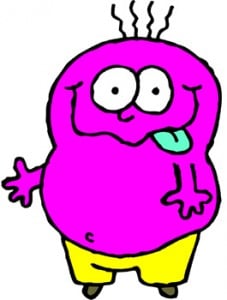
Some of you loved the first 25 words and enjoyed practising these with us. A handful of you felt the words were not difficult enough. Many of you shared other words that you (or your students) find difficult.
Here are the first 25 words.
Here is the second batch (compiled based on comments from learners and teachers via EC, Facebook, and MyEC).
Let’s practise these words together:
1) Listen to the word. (wait for a one second pause after)
2) Say the word with me.
3) Say the sentence with me.
Are you ready?
26. gorgeous (allow a pause and then repeat with me)
The bride looked gorgeous on her wedding day.
27. thoroughly
I thoroughly enjoyed this week’s English class.
28. daughter
My daughter asked if she could have a friend over for a playdate.
29. challenge
I invite all English learners to take my monthly writing challenge.
30. enhance
You will enhance your vocabulary by reading the news.
31. variety
It is important to use sentence variety in your TOEFL essay.
32. influence
Celebrities influence how young people act and dress.
33. effect
The new company policy will take effect next month.
34. whistle
My grandfather taught me how to whistle when I was a child.
35. throughout
Racism has been a global issue throughout history.
36. adjective
What adjective would you use to describe EnglishClub.com?
37. island
Victoria is located on Vancouver Island in British Columbia, Canada.
38. appliance
The washing machine is one appliance that many people could not live without.
39. shrimp
Spaghetti with shrimp is a meal my husband often cooks for dinner.
40. refrigerator
Another appliance that is considered a necessity is the refrigerator.
41. scissors
Left handed people require a special type of scissors.
42. cough
During the flu season, the students are taught to cough in their sleeves.
43. though
I am getting hungry. I can wait a little longer for dinner, though.
44. through
Our friends are going through a difficult divorce.
45. praise
Offering generic praise like “good job” is not enough to motivate a child.
46. free
Do you agree that the best things in life are free?
47. trade
We want to trade our car in for a minivan.
48. vocabulary
Expand your vocabulary by reading blogs when you are online.
49. psychologist
A psychologist told me that I need to learn how to relax.
50.genuine
The collector said our piece was a genuine antique.
Pronunciation note: I have a Canadian accent. Though Canadian spelling usually sides with British English, Canadian pronunciation is closer to the American accent. Your teacher may have a different accent, such as a British or Australian one.
Thanks again to all of the readers of ESL Magazine who helped create this second list. Share your own difficult words in the comments below. Add an example sentence and we may use it in an upcoming audio post.
Written by Tara Benwell for EnglishClub | January 2010
Tara Benwell is a Canadian freelance writer and editor who specializes in materials and articles for the ELT industry.
© EnglishClub.com
The pronunciation of words in English is not always straightforward. Unlike some languages, such as French or Spanish, there is not always a direct relationship between the spelling of words and how they are said aloud. In technical terms, there is not always a consistent relationship between graphemes (basically, writing units) and their phonemes (sounds) in English. There are a couple of reasons for this. The English language is a wondrous hodgepodge of loanwords, or words borrowed from other languages all of which follow their own conventions for pronunciation, and English spelling was not standardized until relatively recently in its history. For native English speakers and English language learners alike, there are words that are hard to pronounce.
To help give you a leg up on some of the trickier words you may come across in everyday life, we have broken down 26 of the hardest-to-pronounce words in the English language, from A–Z … or from A–W, anyway. Bonus: click on each word to hear its proper pronunciation on its entry page!
accessory
The double C in accessory is part of what makes this word tricky. People are often tempted to replace the C with a single S sound. However, each of these C letters represents a different sound (a “hard C” and a “soft C”). With that in mind, accessory is pronounced [ ak-ses–uh-ree ].
anemone
This word is so hard to pronounce that it was even featured as a joke in the popular Pixar film Finding Nemo. There are two elements that make the word anemone tricky—the preponderance of M and N sounds and the [ uh-nee ] ending that looks like it should be pronounced like the number one. That said, this word does have a particular rhythm to it that can help you pronounce it correctly: [ uh–nem–uh-nee ].
choir
It’s tempting to pronounce the CH in choir with a [ ch ] sound, but that would be incorrect. The word choir is actually pronounced [ kwahyuhr ]. An antique and sadly obsolete spelling of this word is quire, which is a clearer representation of how it is pronounced.
colonel
The word colonel came to English through French, where it was spelled coronel. For historical reasons, which you can read about at our entry for the word, the R was eventually replaced with an L. Keeping this in mind, colonel is still pronounced [ kur-nl ].
Learn about where colonels sit in military rankings, here.
coup
Another word that has been adopted into English from French, complicating pronunciation, is coup. In French, the letters -oup at the end of a word is pronounced [ oo ]. We didn’t just adopt this French word into English, we adopted the French pronunciation, too. That means coup is correctly pronounced [ koo ].
epitome
In words that have been adopted into English from Greek, it is typical to pronounce all of the vowels. This is how we get the pronunciation epitome, from the Greek epitomḗ. Unlike many words in English, the final -e here is not silent; epitome is pronounced [ ih-pit–uh-mee ].
espresso
Coffee snobs love to correct folks on their pronunciation of the word espresso. It’s tempting to replace that first S with an X, because ex– is a common prefix in English. However, the word comes from Italian and is correctly pronounced [ e-spres-oh ].
Sip on even more coffee terms that may be easier to pronounce but are just as tricky to spell.
February
The word February is often pronounced as if the first R is not present: [ feb-yoo-er-ee ]. This is because R sounds and Y sounds are quite closely related. Therefore, this is considered a correct pronunciation of the word. However, it is also considered correct to pronounce the R, as in [ feb-roo-er-ee ].
hyperbole
Like the other words from Greek we have covered, the final -e in hyperbole is not silent. Hyperbole, from the Greek hyperbolḗ, is correctly pronounced [ hahy-pur-buh-lee ].
isthmus
The word isthmus presents a challenge of pronunciation when read aloud, because most English speakers would be tempted to pronounce the TH in this word. However, in this case, the TH is silent, making the correct pronunciation [ is-muhs ]. Another word you may be familiar with that has a silent TH is asthma [ az-muh ].
juror
The R sounds in English can be particularly tricky. It can be hard to get your mouth around them. The word juror is pronounced [ joor-er ] or [ joor-awr ]. Pronouncing R sounds in English simply takes practice. Relaxing your jaw and reciting tongue twisters like “Round and round the rugged rocks the ragged rascal ran” can help.
library
Speaking of R sounds, the R in library throws many people off. They feel tempted to make the first R sound an [ er ], making the word four syllables, as in [ lahy-ber-er-ee ]. However, there is no E in library, so the word is simply pronounced with three syllables: [ lahy-brer-ee ].
mischievous
Another word where you may be tempted to add an unnecessary syllable or two is mischievous. The –ie and –ous endings often make people think there are [ ee ] sounds in the word [ mis-chee-vee-uhs ], but there aren’t. The word is simply three syllables long, without any [ ee ] sounds: [ mis-chuh-vuhs ].
murderer
As we noted earlier, the R sound in English can be tricky. That’s what makes murderer, with its three R sounds particularly difficult to pronounce. The word is pronounced [ mur-der-er ].
Did you know a group of crows is called a “murder”?Learn about other fanciful and strange names for groups of animals.
nuclear
For whatever reason, many people like to add an additional [ yoo ] sound to the word nuclear. However, it is pronounced with a single [ oo ] or [ yoo ] sound: [ noo-klee-er ] or [ nyoo-klee-er ].
onomatopoeia
The word onomatopoeia is a riot of vowels, making it a challenge to pronounce. The ending –poeia is pronounced simply [ pee–uh ]. The O is silent. Onomatopoeia, which describes a word that imitates a sound, is pronounced [ on-uh-mat-uh–pee–uh ].
remuneration
A common mistake people make when pronouncing the word remuneration is to swap the easily-confused M and N sounds, likely because the word number is so common in the English language. The word, although it describes pay, does not come from the word number, but the Latin mūnus, meaning “gift.” Remuneration is pronounced [ ri-myoo-nuh–rey-shuhn ].
rural
Rural, like juror and murderer, is challenging because of all of its R sounds. Rural is pronounced [ roor–uhl ].
schadenfreude
The word schadenfreude is a loanword from German. It means “satisfaction or pleasure felt at someone else’s misfortune.” The pronunciation of schadenfreude also comes from German, so it does not follow typical English pronunciation guidelines: [ shahd-n-froi-duh ].
scissors
Like in our first example, accessory, there is some confusion about whether the C in scissors is a “hard C sound” or a “soft C sound.” Well, the SC in scissors is pronounced simply [ s ], making the correct pronunciation of this word [ siz-erz ].
specific
People often like to swap the S and P sounds in the word specific, rendering it closer to the name of the ocean: Pacific. However, the word is pronounced with the sounds in the order they appear, [ spi-sif-ik ].
squirrel
One of the hardest words in the English language to pronounce, especially for non-native English speakers, is squirrel. They tend to want to add an additional [ uh ] sound in there. However, remember that this slippery-sounding word has only two syllables: [ skwur–uhl ].
supposedly
The –edly ending of supposedly tends to trip people up. They like to swap it out for the more-common -ably. But, the word should be read as written, making the correct pronunciation [ suh–poh-zid-lee ]. If you mix up these two terms, you’re definitely not alone. Even Joey from Friends famously and hilariously couldn’t figure out if supposedly and supposably were different words. Shockingly, supposably is, in fact, a real word and has been used since at least the 1700s. Learn more about its surprising meaning here.
synecdoche
This word is almost as hard to spell as it is to pronounce correctly. As you may have guessed from some of the other terms on this list, synecdoche comes from Greek synekdochḗ. The first C and the CH here are both pronounced as hard K sounds. The correct pronunciation of synecdoche is [ si-nek-duh-kee ], not to be confused with the name of the town in New York: Schenectady, pronounced [ skuh–nek-tuh-dee ].
Worcestershire (sauce)
If you are a fan of Bloody Marys, making your own salad dressing, or eating a nice steak, you are likely familiar with Worcestershire sauce. British English conventions for the pronunciation of place names is something we could write a whole article on. For now, though, just trust us that Worcestershire is pronounced [ woos-ter-sheer ].
vocabulary
Ironically, one of the hardest vocabulary words to pronounce is vocabulary. People often will pronounce the U in the word as [ uh ]. However, the U here makes a [ yuh ] sound. The correct pronunciation of this word, therefore, is [ voh-kab-yuh-ler-ee ].
Are there words we have not covered here that you find difficult to pronounce? You can use the dictionary to help you out there. In every entry, you will find a guide and audio files to help you pronounce the word correctly. It’s a great resource to help you ensure you nail even the trickiest pronunciations in the English language.

